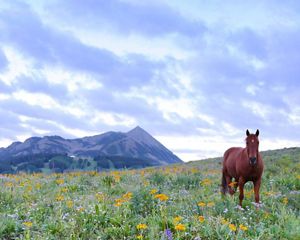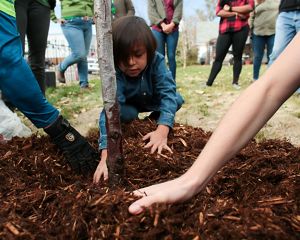Visit Harold’s Google Scholar page for an updated list of publications.
Peer-reviewed publications:
Jung, N., Eyster, H. N., Chan, K. M. A. (In Press). Re-Envisioning Urban Landscapes: Lichens, Liverworts, & Mosses Coexist Spontaneously With Us. Frontiers in Ecology and Environment.
Eyster, H. N., Chan, K. M. A., Fletcher, M., Beckage, B. (2024). Space-for-time substitutions exaggerate urban bird–habitat ecological relationships. Journal of Animal Ecology, 93, 1854–1867. https://doi.org/10.1111/1365-2656.14194
Phurisamban, R., Luna, E., Eyster, H. N., Chignell, S., Koppes, M. (In Press). Expanding the tent: Why and how environmental scientists should embrace reflexive practices. Ecosphere.
Sophia Winkler-Schor, Harold N. Eyster, Diele Lobo, Lauren Redmore, Andrew J. Wright, Kwan-Lamar Blount-Hill, Victoria M. Lukasik, Wendy Chávez-Páez, Sarah Beard, Catherine Christen, Zoe Nyssa. (2024). Enhancing disciplinary diversity and inclusion in conservation science and practice using the Society for Conservation Biology. Conservation Biology, 38, e14395. https://doi.org/10.1111/cobi.14395
Eyster, H. N., Rodríguez González, M., and Gould, R. K. (2024). Green gentrification & luxury effect: uniting isolated ideas towards just cities for people & nature. Ecosystems & People, 20(1). https://doi.org/10.1080/26395916.2024.2399621
Nyssa, Z., Winkler-Schor, S., Lobo, D., Eyster, H. N., Write, A. J. (2024). A Framework for Promoting Disciplinary Diversity and Inclusion Through Epistemic Justice. Conservation Biology, 38, e14409. https://doi.org/10.1111/cobi.14409
Kai M. A. Chan, Rachelle K. Gould, Rocío López de la Lama, and Eyster, H. N. (In Press). What if Cultural Ecosystem Services were Relational? A Research Agenda for Nature’s Contributions to Well-Being— and Human Action. Routledge Handbook on Cultural Ecosystem Services.
Gilbert, N. A., Kolbe, S., Eyster, H. N., Grinde, A. (2024). Internal range structure associated with range-limit population trends. Journal of Animal Ecology, 93, 1556–1566. https://doi.org/10.1111/1365-2656.14168
Eyster, H. N., & Beckage, B. (2024). Applying a deep learning pipeline to classify land cover from low-quality historical rgb imagery. PeerJ Computer Science, 10, e2003. https://doi.org/10.7717/peerj-cs.2003
Eyster, H. N., & Beckage, B. (2023). Arboreal urban cooling is driven by leaf area index, leaf boundary layer resistance, and dry leaf mass per leaf area: Evidence from a system dynamics model. Atmosphere, 14(3), 552. https://doi.org/10.3390/atmos14030552
Eyster, H. N., Naidoo, R., & Chan, K. M. A. (2023). Towards ecotourism that nurtures local visions for landscapes and wildlife. Animal Conservation, 26(4), 448–449. https://doi.org/10.1111/acv.12900
Eyster, H. N., Satterfield, T., & Chan, K. M. A. (2023). Empirical examples demonstrate how relational thinking might enrich science and practice. People and Nature. https://doi.org/10.1002/pan3.10453
Chaplin-Kramer, R., Neugarten, R. A., Gonzalez-Jimenez, D., Ahmadia, G., Baird, T. D., Crane, N., Delgoulet, E., Eyster, H. N., Kurashima, N., Llopis, J. C., Millington, A., Pawlowska-Mainville, A., Rulmal, J., Saunders, F., Shrestha, S., Vaughan, M. B., Winter, K. B., Wongbusarakum, S., & Pascual, U. (2023). Transformation for inclusive conservation: Evidence on values, decisions, and impacts in protected areas. Current Opinion in Environmental Sustainability, 64, 101347. https://doi.org/10.1016/j.cosust. 2023.101347
Gilbert, N. A., Eyster, H. N., & Zipkin, E. F. (2023). Propagating uncertainty in ecological models to understand causation. Frontiers in Ecology and the Environment, 21(3), 114–115. https://doi.org/10. 1002/fee.2610
Gould, R. K., Soares, T. M., Arias-Arévalo, P., Cantú-Fernandez, M., Baker, D., Eyster, H. N., Kwon, R., Prox, L., Rode, J., Suarez, A., Vatn, A., & Zúñiga-Barragán, J. (2023). The role of value(s) in theories of human behavior. Current Opinion in Environmental Sustainability, 64, 101355. https://doi.org/10. 1016/j.cosust.2023.101355
Eyster, H. N., & Beckage, B. (2022). Conifers may ameliorate urban heat waves better than broadleaf trees: Evidence from Vancouver, Canada. Atmosphere, 13(5), 830. https://doi.org/10.3390/atmos13050830
Eyster, H. N., Naidoo, R., & Chan, K. M. A. (2022). Not just the big five: African ecotourists prefer parks brimming with bird diversity. Animal Conservation. https://doi.org/10.1111/acv.12816
Eyster, H. N., Olmsted, P., Naidoo, R., & Chan, K. M. A. (2022). Motivating conservation even for widespread species using genetic uniqueness and relational values. Biological Conservation, 266, 109438. https: //doi.org/10.1016/j.biocon.2021.109438
Eyster, H. N., Satterfield, T., & Chan, K. M. (2022). Why people do what they do: An interdisciplinary synthesis of human action theories. Annual Review of Environment and Resources, 47(1). https://doi. org/10.1146/annurev-environ-020422-125351
Eyster, H. N., Srivastava, D. S., Kreitzman, M., & Chan, K. M. A. (2022). Functional traits and metacommunity theory reveal that habitat filtering and competition maintain bird diversity in a human shared landscape. Ecography. https://doi.org/10.1111/ecog.06240
Kreitzman, M., Eyster, H. N., Mitchell, M., Czajewska, A., Keeley, K., Smukler, S., Sullivan, N., Verster, A., & Chan, K. M. A. (2022). Woody perennial polycultures in the U.S. Midwest enhance biodiversity and ecosystem functions. Ecosphere, 13(1). https://doi.org/10.1002/ecs2.3890
Eyster, H. N., & Wolkovich, E. M. (2021). Comparisons in the native and introduced ranges reveal little evidence of climatic adaptation in germination traits. Climate Change Ecology, 2, 100023. https://doi. org/10.1016/j.ecochg.2021.100023
Chan, K. M. A., Boyd, D. R., Gould, R. K., Jetzkowitz, J., Liu, J., Muraca, B., Naidoo, R., Olmsted, P., Satterfield, T., Selomane, O., Singh, G. G., Sumaila, R., Ngo, H. T., Boedhihartono, A. K., Agard, J., Aguiar, A. P. D., Armenteras, D., Balint, L., Barrington-Leigh, C., Cheung, W. W. L., Díaz, S., Driscoll, J., Esler, K., Eyster, H. N., Gregr, E. J., Hashimoto, S., Pedraza, G. C. H., Hickler, T., Kok, M., Lazarova, T., Mohamed, A. A. A., Murray-Hudson, M., O‘Farrell, P., Palomo, I., Saysel, A. K., Seppelt, R., Settele, J., Strassburg, B., Xue, D., & Brondízio, E. S. (2020). Levers and leverage points for pathways to sustainability. People and Nature, 2(3), 693–717. https://doi.org/10.1002/pan3.10124
Stoddard, M. C., Eyster, H. N., Hogan, B. G., Morris, D. H., Soucy, E. R., & Inouye, D. W. (2020). Wild hummingbirds discriminate nonspectral colors. Proceedings of the National Academy of Sciences, 117(26), 15112–15122. https://doi.org/10.1073/pnas.1919377117
Stoddard, M. C., Miller, A. E., Eyster, H. N., Akkaynak, D., & Stoddard, M. C. (2018). I see your false colours: how artificial stimuli appear to different animal viewers. Interface Focus, 1(9). https://doi. org/10.1098/rsfs.2018.0053
Stoddard, M. C., Kupán, K., Eyster, H. N., Rojas-Abreu, W., Cruz-López, M., Serrano-Meneses, M. A., & Küpper, C. (2016). Camouflage and Clutch Survival in Plovers and Terns. Scientific Reports, 6(January), 32059. https://doi.org/10.1038/srep32059
United Nations Reports, Contributing Author
Barton, D. N., Chaplin-Kramer, B., Lazos Chavero, E., Van Noordwijk, M., Engel, S., Girvan, A., Hahn, T., Leimona, B., Lele, S., Muradian, R., Niamir, A., Ozkaynak, B., Pawlowska-Mainville, A., Ungar, P.,¨ Nelson, S., Aydin, C. I., Iranah, P., Cantú, M., & González-Jiménez, D. (2022, July). Chapter 4. Value expression in decision-making. (J. C. Cárdenas & S. Baker, Eds.; tech. rep.). IPBES Secretariat. Bonn, Germany. https://doi.org/10.5281/ZENODO.6522261
Chan, K. M. A., Agard, J., Liu, J., Aguiar, A. P. D. d., Armenteras, D., Boedhihartono, A. K., Cheung, W. W. L., Hashimoto, S., Pedraza, G. C. H., Hickler, T., Jetzkowitz, J., Kok, M., Murray-Hudson, M., O’Farrell, P., Satterfield, T., Saysel, A. K., Seppelt, R., Strassburg, B., Xue, D., Selomane, O., Balint, L., & Mohamed, A. (2019). Pathways towards a sustainable future. In E. S. Brondízio, J. Settele, S. Díaz, & H. Ngo (Eds.), Global assessment report of the intergovernmental science-policy platform on biodiversity and ecosystem services. IPBES. https://doi.org/10.5281/zenodo.3832100



